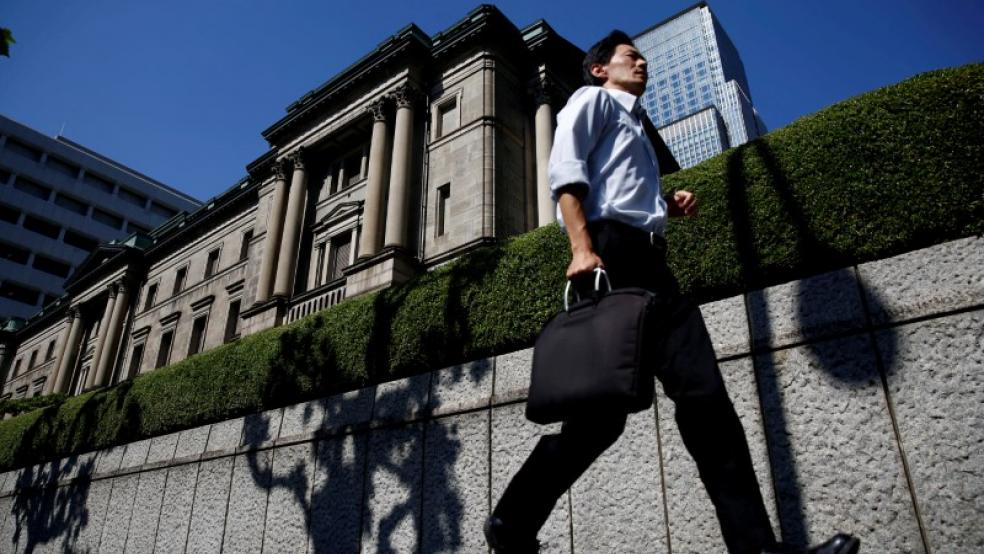In its monthly economic report, the government also kept unchanged its assessment of consumer spending, capital expenditure and exports, as the economy stabilizes after a recession unexpectedly caused by a sales tax hike last April.
The report comes ahead of a closely watched Bank of Japan meeting on April 30 where the central bank will update its forecasts for consumer prices and inflation. Some economists say that could set the stage for further monetary easing."The economy continues a moderate recovery trend as improvement is seen in the corporate sector," said the Cabinet Office, which compiled the April economic report.One month ago, the government changed its assessment, upgrading it for the first time in eight months as factory activity improved.The Cabinet Office said consumer spending in April was holding firm, the same assessment it gave last month.Capital expenditure is flat and exports are showing signs of recovery, it said.Japan's industrial output is also recovering, the monthly report said.A weak yen has pushed up corporate profits, which has lead companies to increase business investment and hire more workers. However, there are still some areas of concern as real wages continue to fall and some economists say this could hold back consumer spending.Inflation in Japan has ground to a halt as a decline in oil prices from last year weighs on consumer prices.The BOJ is under pressure to cut its forecast that inflation will hit 2 percent within the current fiscal year when it reviews its forecasts on April 30.BOJ Deputy Governor Hiroshi Nakaso sent a strong signal in an interview with Reuters earlier this month that a downgrade to the central bank's CPI forecasts will not be enough to trigger additional easing.Economics Minister Akira Amari and other government officials have also indicated that the current slowdown in inflation is beyond the BOJ's ability to control because it stems from lower oil prices.Still, some traders speculate that the BOJ will have to increase its purchases of government debt and risk assets some time this year to help the inflation pace accelerate again. (Reporting by Stanley White; Editing by Richard Borsuk)Japan govt leaves economic assessment unchanged in April

KIM KYUNG-HOON



